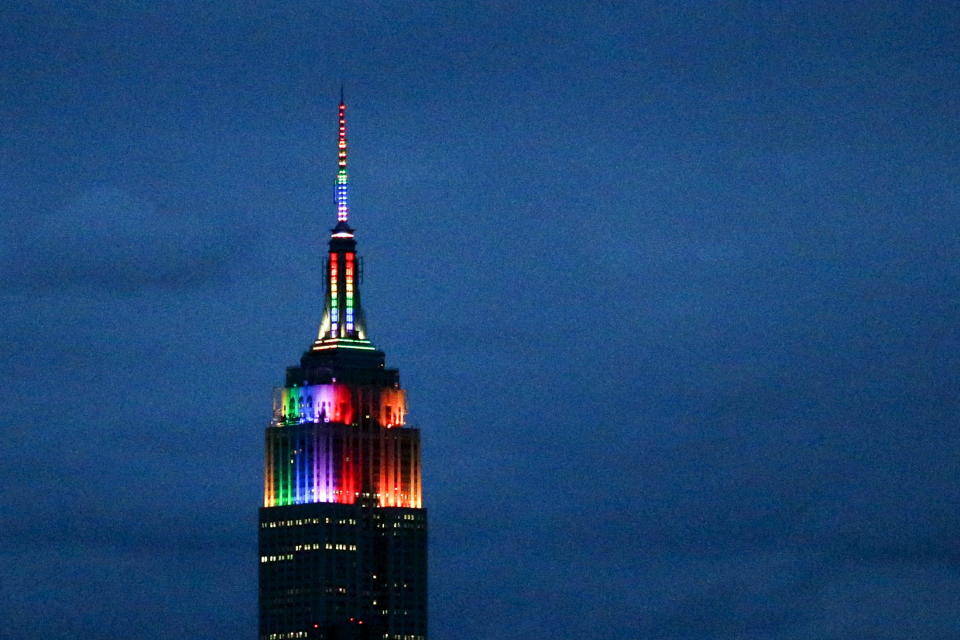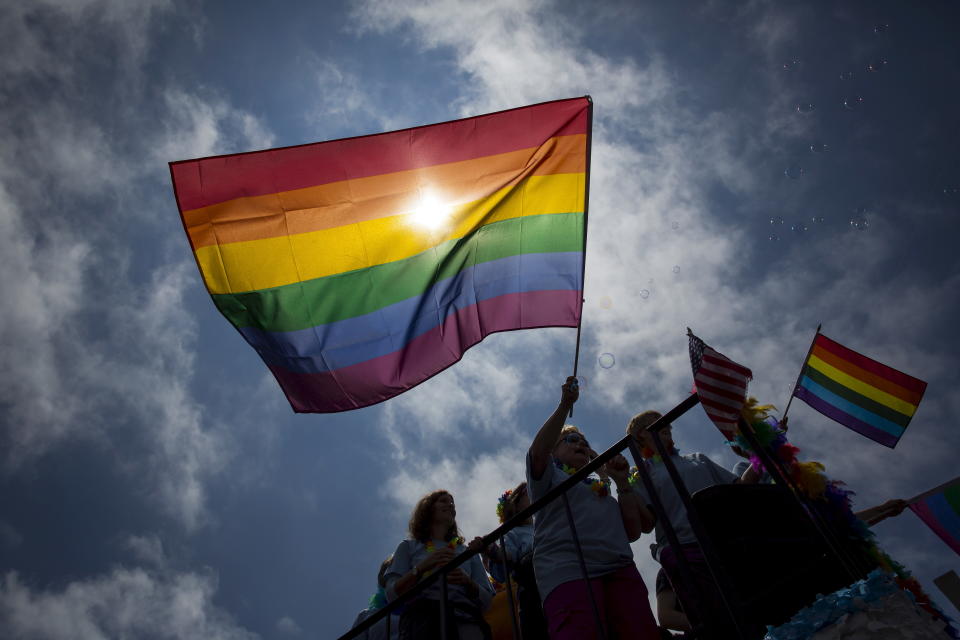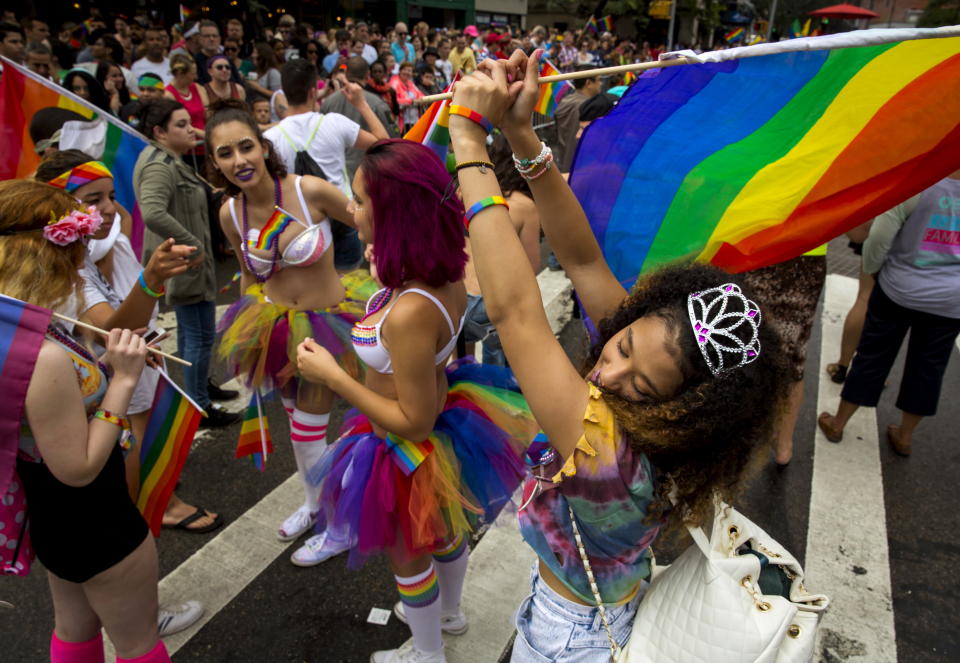US Rejects UN Resolution Condemning Death Penalty For LGBTQ People, Other Groups
The United States joined countries like Iraq and Botswana in voting against a United Nations resolution that, among other things, condemns the use of the death penalty against LGBTQ people.
The U.N. Human Rights Council passed the measure on Friday, with 27 countries voting in favor and 13 against. It aims to ensure that the death penalty is not applied arbitrarily or discriminatorily against minors, racial and ethnic minorities, those with mental illnesses, pregnant women and gay people, or be used as punishment for apostasy, blasphemy and adultery.
More broadly, the measure urges nations that have not already abolished the death penalty to consider doing so.
Renato Sabbadini, executive director of the International Lesbian, Gay, Bisexual, Trans and Intersex Association (ILGA), celebrated the passage as a “monumental moment” in which the international community recognizes that certain “horrific laws” must end.
“It is unconscionable to think that there are hundreds of millions of people living in States where somebody may be executed simply because of whom they love” he said in a statement.
The U.S. rejected the resolution, along with Botswana, Burundi, Egypt, Ethiopia, Bangladesh, China, India, Iraq, Japan, Qatar, Saudi Arabia and the United Arab Emirates. Countries that voted in favor included Cuba, Venezuela, Switzerland and Brazil.
Speaking to reporters Tuesday, State Department spokeswoman Heather Nauert defended the Trump administration against what she described as “misleading” media reports and claims that the vote signaled a bias against the LGBTQ community.
“The United States unequivocally condemns the application of the death penalty for conduct such as homosexuality, blasphemy, adultery and apostasy,” Nauert said. “We do not consider such conduct appropriate for criminalization.”
FactCheck: Reports on @UN HumanRightsCouncil vote WRONG. US condemns death penalty based on sex orientation, blasphemy, apostasy @StateDept
— Heather Nauert (@statedeptspox) October 3, 2017
Nauert said the U.S. was “disappointed” to have voted against the measure, but did so because of “broader concerns with the resolution’s approach to condemning the death penalty in all circumstances.” The U.S. “had hoped for a balanced and inclusive resolution that would better reflect the positions of states that continue to apply the death penalty lawfully, as the United States does,” she said.
The U.S. opting not to support U.N. measures condemning the death penalty is nothing new. Still, with its vote on Friday, the U.S. finds itself in the company of countries like Saudi Arabia, which implements the death penalty over same-sex relations.
In 2014, the Obama administration abstained from voting on a death penalty resolution, although that measure did not include language about same-sex relations. At the time, Ambassador Keith Harper explained the decision: “International law does not prohibit capital punishment when imposed and carried out in a manner that is consistent with a state’s international obligations. We therefore urge all governments that employ the death penalty to do so in conformity with their international human rights obligations.”
Charles Radcliffe, chief of Equality and Non-Discrimination at the U.N.’s Office of the High Commissioner for Human Rights, told HuffPost via email that the U.S. “consistently votes against or abstains on all resolutions having to do with the death penalty as a matter of principle ― and has done so for many years, including during the Obama administration.” The “likely reason,” he said, is that the U.S. is one of the world’s top 10 executioners.
“This resolution also singled out discriminatory use of the death penalty and execution of people with intellectual disabilities ― both areas where there have been allegations levelled at the U.S. in the past,” Radcliffe said.
André du Plessis, head of U.N. Programme and Advocacy at the ILGA, told PinkNews that votes cast against the measure are “generally best-interpreted as a position by a country on the death penalty as a whole.”
Capital punishment in the U.S. is used, at least in practice, only in murder cases, often those involving aggravating factors such as kidnapping and rape. The death penalty is legal in 31 states, as well as at the federal level.
The Human Rights Campaign (HRC), the nation’s largest LGBTQ group, was among those that blasted the Trump administration Tuesday, calling out U.S. Ambassador to the United Nations Nikki Haley by name.
“Ambassador Haley has failed the LGBTQ community by not standing up against the barbaric use of the death penalty to punish individuals in same-sex relationships,” Ty Cobb, director of HRC Global, said in a statement. “While the U.N. Human Rights Council took this crucially important step, the Trump/Pence administration failed to show leadership on the world stage by not championing this critical measure. This administration’s blatant disregard for human rights and LGBTQ lives around the world is beyond disgraceful.”
In a post to Twitter, Susan Rice, a former U.S. ambassador to the United Nations and national security adviser under President Obama, accused the Trump administration of failing to defend human rights for all.
Shame on US! I was proud to lead U.S. efforts at UN to protect LGBTQ people, back in the day when America stood for human rights for all 🇺🇸 https://t.co/3Y403bP7Wh
— Susan Rice (@AmbassadorRice) October 3, 2017
Ben Rhodes, Obama’s former deputy national security adviser, also weighed in.
What possible reason could the Trump Administration have for not condemning death penalty for LGBTQ people? We should be leading on this https://t.co/4SqekZAcGe
— Ben Rhodes (@brhodes) October 3, 2017
Four countries — Iran, Saudi Arabia, Sudan and Yemen — currently use the death penalty as punishment for same-sex relations, as do parts of Somalia and Nigeria, according to a 2017 report by ILGA.
Love HuffPost? Become a founding member of HuffPost Plus today.
Also on HuffPost
American Civil Liberties Union (ACLU): We will see him in court.

GLSEN: It is un-American to make anyone’s basic rights subject to the personal discretion of others.

Human Rights Campaign (HRC): By even considering this discriminatory order he has broken his promise.

National LGBTQ Task Force: It trashes the separation of church and state and aims to combine them.

Center For American Progress: CAP sees this for what it is: a license to discriminate.

This article originally appeared on HuffPost.

